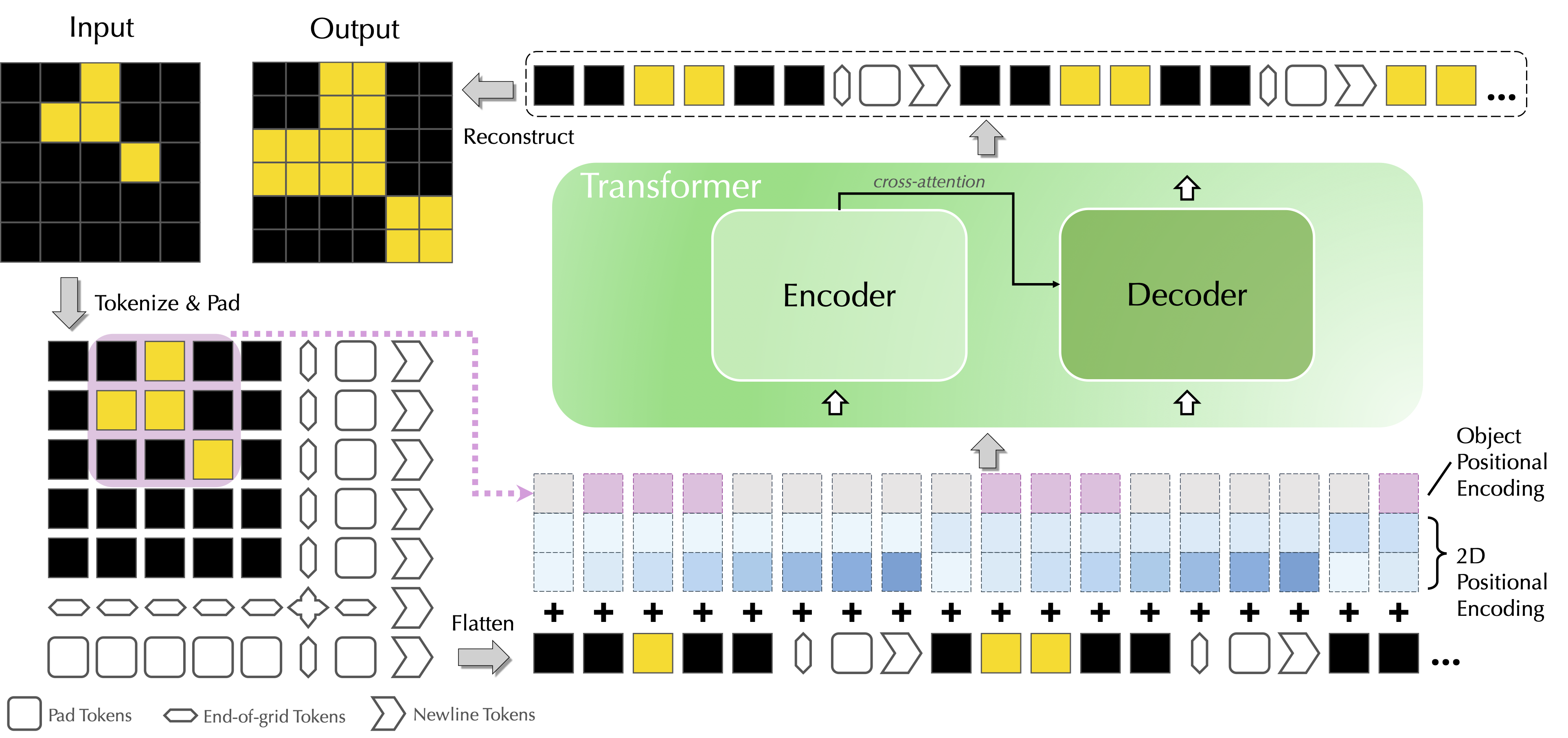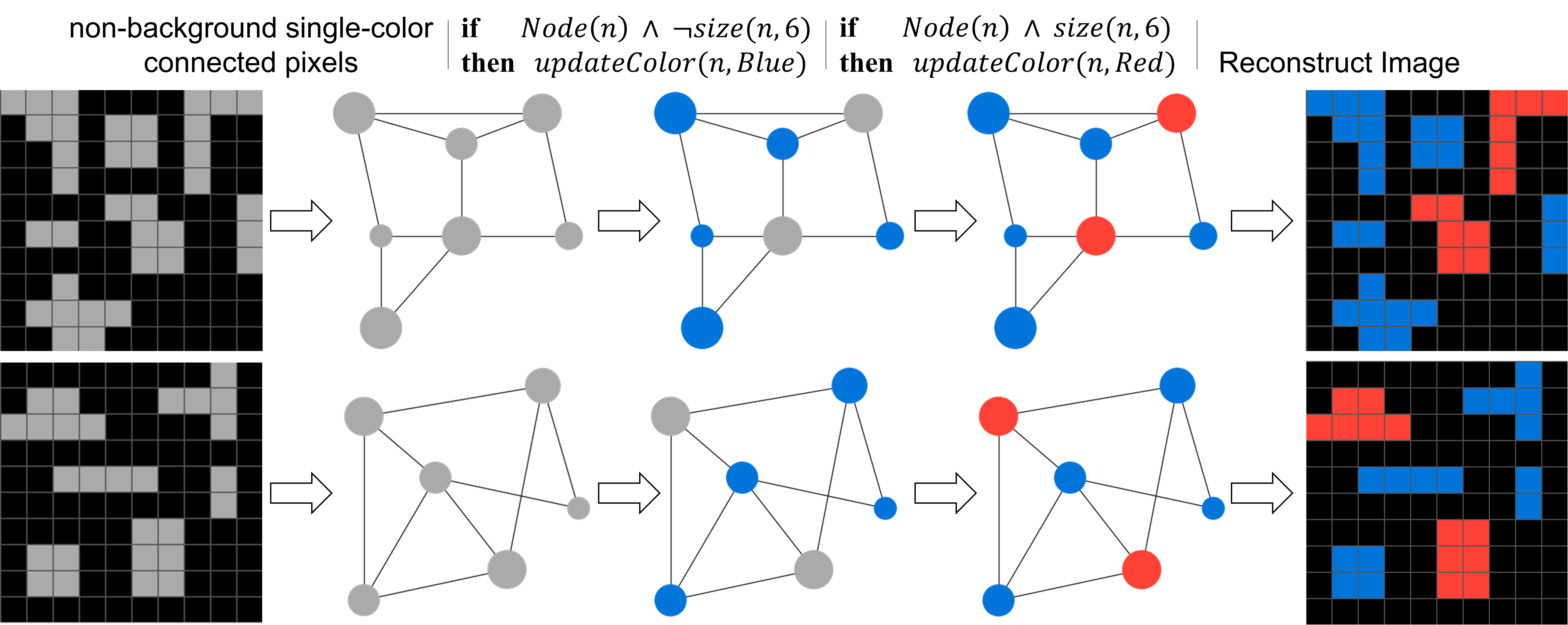|
I am currently pursuing my PhD in Mechanical and Industrial Engineering at the University of Toronto, under the guidance of Professor Scott Sanner and Professor Elias Khalil. My academic journey began at the same institution, where I completed my Bachelor of Applied Science (BASc) in Engineering Science majoring in Machine Intelligence followed by a Master of Applied Science (MASc) from the Department of Mechanical and Industrial Engineering, also supervised by Professor Sanner and Professor Khalil. My Master's research focused on solving the Abstraction and Reasoning Corpus (ARC-AGI) using object-centric approaches. |

|
|
My research focuses on developing machine learning models for solving constraint reasoning problems. I am particularly interested in generative models such as the Transformer, and in aligning their reasoning capabilities with the structure of constraints. |
|
|

Iteratively solving constraint reasoning problems with self-supervised Transformers. |
|
Yudong Xu, Wenhao Li, Scott Sanner, Elias B. Khalil Paper / Poster / Slides / Code |

Enhancing the vision transformer (ViT) architecture to solve the Abstraction and Reasoning Corpus. |
|
Wenhao Li, Yudong Xu, Scott Sanner, Elias B. Khalil Paper / Tweet / |

An exploration of LLMs' ability to solve the Abstraction and Reasoning Corpus. |
|
Yudong Xu, Wenhao Li, Pashootan Vaezipoor, Scott Sanner, Elias B. Khalil In Transactions on Machine Learning Research Website / Paper / Data / Tweet / |

A graph-based symbolic AI approach to solving the Abstraction and Reasoning Corpus. |
|
Yudong Xu, Elias B. Khalil, Scott Sanner In Proceedings of the 37th AAAI Conference on Artificial Intelligence Paper / Code / Poster / Slides / |
|
|
|
Reviewer,
ICLR 2025,2026, TMLR 2024,2025,2026, IJCAI 2024, AAAI 2026, ICML 2026 Teaching Assistant at the University of Toronto, MIE369 - Introduction to Artificial Intelligence , Winter 2024, 2025 |
|
This template is from Jon Barron's website. Here is the source code. |